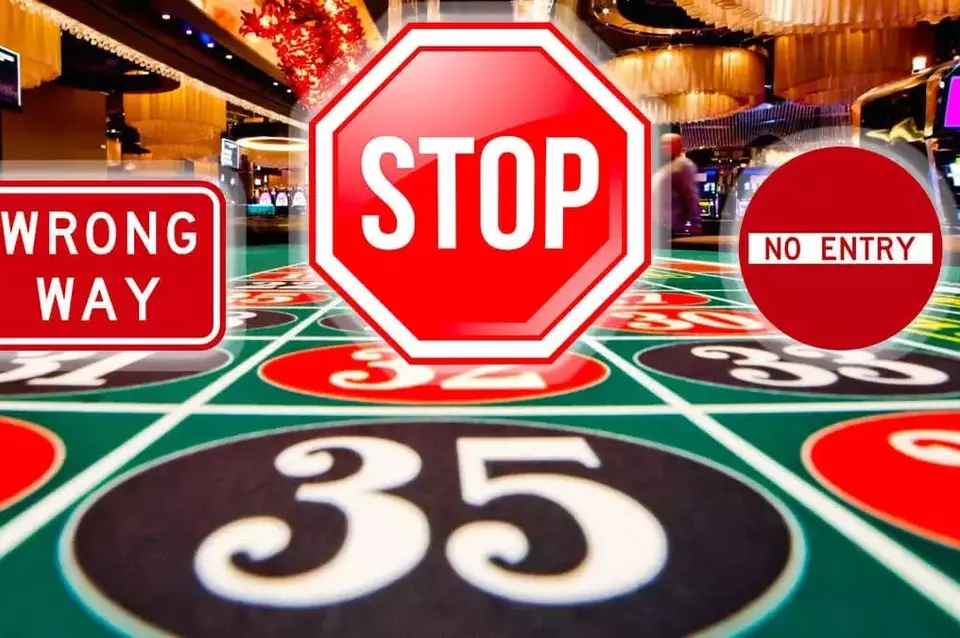 As the launch of regulated sports wagering in Connecticut is approaching, a tool that would enable punters from the state to restrict themselves from betting went live yesterday. The Department of Consumer Protection introduced a special program for self-exclusion that will allow bettors to voluntarily ban themselves from virtual wagering. The new tool enables temporary self-exclusion for one to five years. Gamblers who want to bar themselves permanently can self-exclude for life.
As the launch of regulated sports wagering in Connecticut is approaching, a tool that would enable punters from the state to restrict themselves from betting went live yesterday. The Department of Consumer Protection introduced a special program for self-exclusion that will allow bettors to voluntarily ban themselves from virtual wagering. The new tool enables temporary self-exclusion for one to five years. Gamblers who want to bar themselves permanently can self-exclude for life.
The Connecticut General Assembly did not discuss the measures against problem gambling in much detail during their legalization debates earlier this year. It was up to the Department of Consumer Protection (DCP) to tackle these safeguards, which makes sense, considering the agency has the mandate to regulate the gambling industry in the Nutmeg State.
The DCP Commissioner, Michelle H. Seagull, commented state regulations include many ways for locals to start recognizing how much they are betting. The responsible gambling tools launched by the regulator aim to assist bettors to either set individual limits for themselves or determine whether they have a gambling problem or not.
Residents whose betting has become problematic can voluntarily add themselves to the list of excluded persons. They can either take advantage of a temporary cooling-off period or impose a lifetime ban on themselves. For this purpose, they will have to provide some personal information to verify their identities, including birth date, social security number, and tax ID number.
All Connecticut Gambling Operators Will Have Access to the Exclusion Database
 All gambling operators in the Nutmeg State will have access to the exclusion database, which renders it impossible for excluded players to open new accounts or receive any marketing materials. Furthermore, the operators can also restrict excluded persons from using their services in other states and even countries. Gamblers who have requested lifetime exclusion cannot reverse it in any way.
All gambling operators in the Nutmeg State will have access to the exclusion database, which renders it impossible for excluded players to open new accounts or receive any marketing materials. Furthermore, the operators can also restrict excluded persons from using their services in other states and even countries. Gamblers who have requested lifetime exclusion cannot reverse it in any way.
Those who take advantage of the cooling-off option can renew their exclusion by re-registering or request removal from the list after the cooling-off period ends. Connecticut gamblers themselves also carry some responsibility for refraining from wagering. People who somehow manage to circumvent their exclusion will have their prizes and winnings confiscated.
All excluded individuals will have no access to online or in-person gambling services, including betting on fantasy sports. Family members or third parties cannot add gamblers to the exclusion list, however, as is possible at some private betting sites like FanDuel.
The Emergency Regulations Will Be Replaced in Six Months
 Connecticut’s legalization legislation required the DCP to issue a draft of emergency regulations, which allowed the state’s Regulation Review Committee to introduce them without any public hearings. Under the emergency regulations, Connecticut bettors will receive prompts periodically to remind them how much time they spend online. A tally of their wagers will show once they go over $2,500.
Connecticut’s legalization legislation required the DCP to issue a draft of emergency regulations, which allowed the state’s Regulation Review Committee to introduce them without any public hearings. Under the emergency regulations, Connecticut bettors will receive prompts periodically to remind them how much time they spend online. A tally of their wagers will show once they go over $2,500.
The emergency regulations must be substituted with a new set of rules in the following six months. The new rules will be open to public discussion and will undergo stricter legislative review. Connecticut legislature passed the sports wagering and online gambling law earlier this year, in May.
The new law paved the way for the biggest legal gambling expansion in the state since the tribal Foxwoods Resort and Mohegan Sun opened doors to customers in the 1990s. The new legislation authorizes the CT Lottery, the Mashantucket Pequot and the Mohegan tribes to offer sports betting to residents of the state. The two tribal nations will also be able to provide casino gambling on smartphones and other digital devices.
The DCP cannot grant permits to the two tribes before the Department of Interior accepts the amendments to their compacts with the state and adds them to the Federal Register. A representative of the Mohegans confirmed yesterday the tribal nation will honor Connecticut’s self-exclusion list at its casino.